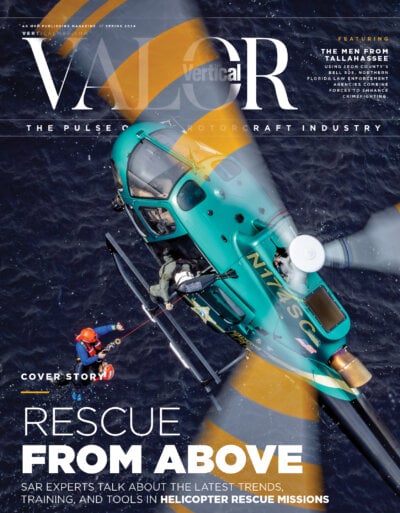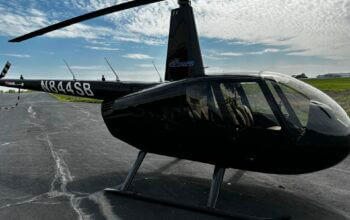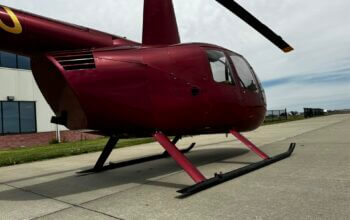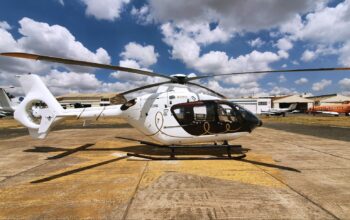U.K.-based Vertical Aerospace is expecting to start aerial ridesharing demonstration flights using its four-passenger VX4 eVTOL aircraft, operated by Virgin Atlantic, as early as spring 2024.
Announced at the Farnborough International Airshow on July 18, the upcoming test flights will be a part of a larger project carried out by a new consortium calling itself the Advanced Mobility Ecosystem Consortium.

Along with Vertical and Virgin Atlantic, the consortium includes aerospace engineer expert Atkins, vertiport ground infrastructure company Skyports, national air navigation service provider NATS, and Heathrow, Bristol and London City airports, among others.
Eve Air Mobility is also supporting the two-year project and working with Skyports and NATS to incorporate its urban air traffic management software into the AAM network that the group plans to develop.
“Vertical is not flying solo,” said Andrew Macmillan, director of infrastructure at Vertical Aerospace. “We are building the best industrial and commercial partner ecosystems and are progressing in Britain with our U.K. launch customer, Virgin Atlantic. We want the U.K. to lead the electric aviation and AAM [advanced air mobility] revolution. This consortium will help prove how we can deliver safer, cleaner and quieter air travel with the VX4.”
With £9.5 million (US$11.4 million) in funding injected into the group by the U.K. government through its Future Flight Challenge, consortium members are working to develop and test what they’re calling “the world’s first” end-to-end network for electric flight.
The demonstration flights, which are contingent on Vertical receiving regulatory approvals from the U.K. Civil Aviation Authority (CAA), are expected to be carried out between Bristol Airport to an airfield in South West England, and between London Heathrow Airport to a Living Lab vertiport developed by Skyports. Meanwhile, a third simulation flight will demonstrate urban connectivity between London City and Bristol airports.

“Just as airports are critical to commercial aeroplane travel, vertiports are critical to AAM,” said Duncan Walker, CEO of Skyports. “Our Living Lab will be a central component of the consortium, enabling Skyports and partners to demonstrate end-to-end operations and test the complexities of developing a commercially viable AAM network in the U.K.”
Heathrow and Bristol airports have agreed to support the test flights in 2024, allowing the group to fully study the AAM network. The group expects these demonstrations will explore key aspects of the passenger journey, as well as vehicle operation, airspace navigation, ground charging, security provision and local stakeholder engagement.
“This is an exciting leap forward for AAM,” said James Richmond, head of AAM at Atkins. “This project brings together experts from across the industry to maintain the U.K.’s leading position in the future of aviation, moving us closer to commercial operations that will connect regions and contribute to the U.K.’s net-zero targets.”
The U.K. government’s Future Flight Challenge — a grant program exploring applications of electric and autonomous aviation systems — forecast that AAM operations could increase the U.K.’s gross domestic product by 1.8% by 2030.
“Our roadmap sets out how air taxis could be in use in the U.K. by 2030, but a lot needs to occur for that to happen,” said Gary Cutts, Future Flight Challenge director at the U.K. Research and Innovation. “By bringing technical developments from across the aviation industry together into one network, and undertaking early demonstration in the real world, the Advanced Mobility Ecosystem Consortium could accelerate the timescale for AAM introduction by years. This project could revolutionize travel, not just in the U.K. but around the world.”








